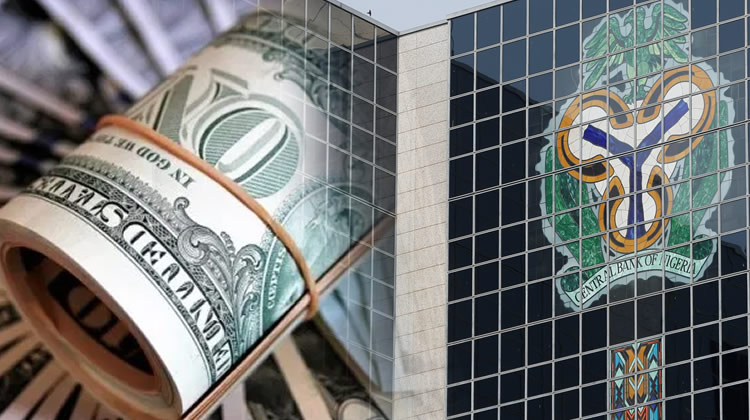Nigeria’s external reserves have risen to $37.31 billion, marking a 22-month high, yet the naira continues to weaken, showing no signs of recovery.
External Reserves Reach 22-Month High
Nigeria’s external reserves, the country’s stock of foreign currency, reached $37.31 billion on September 18, 2024, the highest level since November 2022.
Join our WhatsApp ChannelData from the Central Bank of Nigeria (CBN) confirms this recovery, largely driven by foreign inflows, remittances, and investments.
“The domestic dollar bond is the main driver of the reserves increase,” said Ayokunle Olubunmi, head of financial institutions ratings at Agusto Consulting. “Remittances and foreign portfolio investments have also contributed significantly,” he added.
Factors Behind the Surge in External Reserves
Nigeria’s external reserves have grown by 12.99% this year, an increase of $4.29 billion since January 2024. On a year-to-year comparison, the reserves added $4.03 billion, marking a 12% growth from September 2023.
READ ALSO: Nigeria’s External Reserves Decline By $342m Amid Plans For $500m Domestic Dollar Bond
Key inflows contributing to the rise include:
- Domestic dollar bonds: Nigeria issued a $500 million bond as part of a $2 billion bond aimed at stabilizing the economy.
- Remittances: The CBN reported $553 million in remittances from July 2023 to July 2024.
- Loans: $3.3 billion from AfreximBank and $2.25 billion from the World Bank.
Naira Continues to Decline Despite Growing Reserves
Despite the increase in external reserves, the naira continues to decline against the dollar. The local currency has depreciated by 49.56% in the official market, falling from N776.60 per dollar in September 2023 to N1,539.65 in September 2024.
In the parallel market, the situation is even worse. The naira fell from N965 in September 2023 to N1,660 in September 2024.
“There is a serious confidence crisis in the foreign exchange market,” said Muda Yusuf, CEO of the Centre for the Promotion of Private Enterprise. “This has led to speculative attacks on the naira, worsening its decline.”
Why Rising External Reserves Aren’t Helping the Naira
The rise in external reserves typically strengthens a country’s currency by providing liquidity and financial stability. However, this hasn’t been the case for Nigeria. Experts point to factors such as rising demand for foreign exchange due to increased overseas education and healthcare expenses, as well as a decline in US dollar supply.
According to Olayemi Cardoso, the governor of the CBN, “The exchange rate has been fluctuating due to a simultaneous rise in demand for foreign exchange and a decline in supply.” He further mentioned that Personal Travel Allowances (PTAs) have amounted to $58.7 billion in the past decade, adding pressure to the naira.
Will External Reserves Boost the Naira?
Looking ahead, some analysts believe the rise in external reserves could eventually help stabilize the naira. FBNQuest, a financial advisory firm, noted that the auction of foreign currency-denominated bonds could provide the economy with much-needed FX liquidity.
“The recent foreign currency bond auction will help increase FX liquidity, but addressing issues like oil sector security and boosting crude production is key to long-term foreign exchange stability,” FBNQuest stated.
However, the firm stressed that while foreign currency inflows will help in the short term, a more sustainable solution requires Nigeria to tackle its low oil production levels and security challenges in the oil sector.
Uncertain Future for the Naira
Despite the rise in external reserves, Nigeria’s currency continues to struggle. Factors such as growing foreign exchange demand, speculative activity, and challenges in the oil sector mean the naira may not see immediate relief. The government’s efforts to secure more loans, including a pending $1.7 billion loan from the World Bank, may provide further inflows, but the naira’s decline may persist without addressing underlying issues.
As the government and the CBN explore solutions, the future of the naira remains uncertain, leaving Nigerians to grapple with the widening gap between the growing external reserves and the dwindling value of their local currency.
Emmanuel Ochayi is a journalist. He is a graduate of the University of Lagos, School of first choice and the nations pride. Emmanuel is keen on exploring writing angles in different areas, including Business, climate change, politics, Education, and others.
- Emmanuel Ochayihttps://www.primebusiness.africa/author/ochayi/
- Emmanuel Ochayihttps://www.primebusiness.africa/author/ochayi/
- Emmanuel Ochayihttps://www.primebusiness.africa/author/ochayi/
- Emmanuel Ochayihttps://www.primebusiness.africa/author/ochayi/

















Follow Us